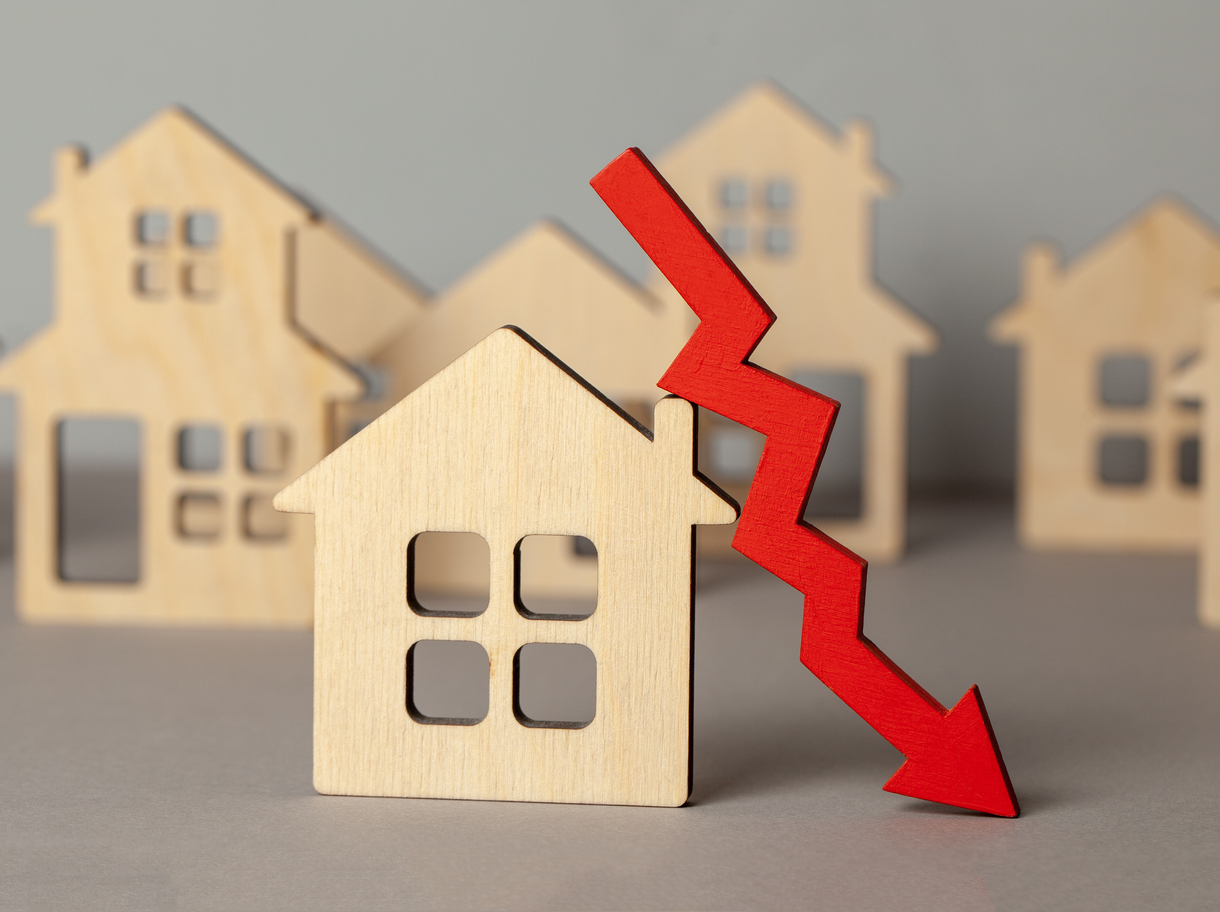 Mortgage rates have hit yet another all-time record low. According to the most recent Freddie Mac Primary Mortgage Market Survey, the 30-year fixed rate fell to 3.03 percent, the lowest on record since Freddie Mac began tracking rates in 1971. Additionally, the 15-year rate dropped to only 2.51 percent. As recent as November of 2018, the 30-year and 15-year rates were 4.94 and 4.33 percent respectively, representing a significant decline in rates in just a few years. If you are wondering if you should consider refinancing, you are not alone. Refinancing inquiries have been skyrocketing as borrowers seek to evaluate how to take advantage of the lowest rates in over 50 years.
Mortgage rates have hit yet another all-time record low. According to the most recent Freddie Mac Primary Mortgage Market Survey, the 30-year fixed rate fell to 3.03 percent, the lowest on record since Freddie Mac began tracking rates in 1971. Additionally, the 15-year rate dropped to only 2.51 percent. As recent as November of 2018, the 30-year and 15-year rates were 4.94 and 4.33 percent respectively, representing a significant decline in rates in just a few years. If you are wondering if you should consider refinancing, you are not alone. Refinancing inquiries have been skyrocketing as borrowers seek to evaluate how to take advantage of the lowest rates in over 50 years.
Should you refinance?
From interest rates and closing costs, to loan terms and the length of time you may stay in your home, there are many factors to consider when determining whether to refinance your mortgage. First, let’s review the basics. Mortgages are structured such that your initial payments are mostly applied toward interest costs with very little initially paying down the principal of the loan. Over the years, more and more of your payments are applied toward paying down the principal and less to interest. When you refinance and restart the term of your loan, you are once again front-loading your interest payments, making it critical to evaluate the net benefit of refinancing.

How long will you stay in the home?
Due to the closing costs associated with refinancing, it is important to consider how long you will remain in the home. By comparing your closing costs to your monthly savings, you can begin to calculate the break-even point – how long you must remain in the home to recoup the costs of the refinance. After recouping the costs, each year you remain in the home will result in more and more savings. Each situation is unique but generally, the greater the differential in interest rates, the shorter the break-even point may be. Next, comparing your break-even point to how long you will be in the home will help you to assess how much savings you may actually realize. Homeowners that might only plan to remain in their home for another 3-5 years might be better off keeping their existing loan while homeowners that plan to remain in their home longer may actually reap the benefits of refinancing. Consider visiting www.bankrate.com to access their mortgage refinance break-even calculators.
Are you paying PMI?
If you have an FHA loan or a conventional loan where you put down less than 20 percent, chances are you may be paying mortgage insurance. If the value of your home has increased since your original loan, refinancing may enable you to eliminate your PMI costs. On the other hand, if you do not have 20 percent equity but are close, you could consider a cash-in refinance where you use some of your own cash reserves to bring the loan up to the 20 percent threshold. Like other break-even calculations, this too requires an analysis to determine if the savings are significant enough to warrant such a move. Additionally, you do not want to leave yourself without sufficient reserves, especially in today’s environment.
Should you adjust the term?
Significant moves in mortgage rates can provide borrowers with the option to leverage lower rates to reduce their monthly payment. Alternatively, borrowers could choose to apply the savings and increase their payment in order to shorten their loan term – something that can really save interest costs in the long-term.
For example, let’s assume a borrower took out a 30-year mortgage for $220,000 at 4.25 percent five years ago. They have approximately $200,000 left on their balance. By refinancing to a 15-year loan at 2.51 percent, their payment would go up by $257/month but they would save nearly $83,000 in interest costs over the life of the loan. If a borrower chose to refinance to a 30-year loan again, they would be adding another 5 years to the life of the loan. Despite lengthening the loan back to 30 years, they would still reduce their monthly payment by approximately $231/month and save approximately $18,000 in interest costs.
As you can see, shortening the term can really lead to significant savings. However, be careful before jumping to reduce your term. It is important that you have available cash flow as you do not want to sacrifice your ability to cover monthly expenses or retirement savings in order to shorten the duration of your mortgage.
If it were possible to predict the direction of the market, everyone would be doing it. The truth is, you can’t time the stock market or the mortgage market. The financial uncertainty associated with the latest outbreak of COVID-19 in the south and west is one major factor in the latest decline of mortgage rates. Trying to determine where mortgage rates go from here is difficult, so rather than trying to time it, run calculations to determine if you can realize enough interest savings to make it worth it to you. If the numbers look good, it may be wise to take advantage of record low rates while you can.
With interest rates the lowest in 50 years, now may be a good time to consider the pros and cons of refinancing your loan. Reducing mortgage insurance, interest costs and even shortening the term of your loan can be a great way to improve your financial position for the future. Since everyone’s situation is unique, consider speaking to your financial adviser to determine the most appropriate approach for you
Kurt J. Rossi, MBA, CFP®, CRPC®, AIF® is a CERTIFIED FINANCIAL PLANNERtm & Wealth Advisor. He can be reached for questions at 732-280-7550, kurt.rossi@Independentwm.com, www.bringyourfinancestolife.com & www.Independentwm.com. LPL Financial Member FINRA/SIPC. CRPC conferred by College for Financial Planning.










